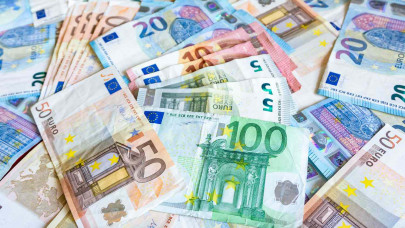The CSRD has introduced wide-ranging changes to the reporting requirements, and also includes a much wider range of reporting companies within its scope. The implementation of these requirements is fundamental in supporting the stated objective of the European Commission to direct capital flows towards sustainable activities.
The Directive provides for information on issues such as the business model, its strategy and policies, key non-financial performance indicators and target indicators, company governance on sustainability issues, assessment of double materiality, risk management and ESG opportunities, as well as environmental (including European taxonomy) and social information, in line with European sustainability reporting standards.
The challenges and opportunities on the journey towards the preparation of future sustainability reporting are complex and varied:
- The assessment of double materiality, which increases complexity through the need for identification not only of the company's impact on society and the environment (impact materiality), but also of how sustainability issues affect the reporting entity itself (financial materiality);
- In addition to reporting on policies and initiatives, the CSRD requires the organization to set objectives related to sustainability issues and to report on progress in achieving them;
- Companies must report and assess the impact of their own production operations and processes. This also applies to the impact of the activities of their partners in the supply chain;
- The details to be submitted must include both prospective and retrospective information, while extending the scope to the entire value chain (the company must explain the steps taken to obtain the necessary information about its value chain, the reasons why not all the necessary information could be obtained, where relevant, and its plans to obtain the necessary information in the future);
The reporting must be carried out in accordance with the EU Sustainability Reporting Standards (ESRS), which will increase the reporting requirements; the first set of ESRS adopted by the European Commission is expected in June 2023; the second set of ESRS (including sectoral standards) adopted by the European Commission is expected in June 2024; ESRS will require companies to provide information in line with the European taxonomy.
The new sustainability reporting rules will start to apply gradually between 2024 and 2028, as follows:
- From 1 January 2024 for public-interest entities with more than 500 employees, for reports issued in 2025;
- From 1 January 2025 for large companies (exceeding 2 of the size criteria: more than 250 employees and/or €40 million turnover and/or €20 million total assets), for reports issued in 2026;
- From 1 January 2026 for publicly traded SMEs, for reports issued in 2027.
As Ramona Jurubiță, Country Managing Partner, KPMG in Romania, states: „The new requirements for reporting on sustainability are a catalyst for change and have a vital role in building the future. The responsibility for publishing sustainability reports and for addressing how challenges to the future of the planet will be addressed lies with boards of directors. While the preparation for the CSRD requires the allocation of substantial investments and specialized resources, organizations could also gain a competitive advantage by integrating the new reporting framework into the ESG risk and opportunity assessment process.”
According to Adela Ciucioi, Partner, Deputy Head of Audit & Assurance, KPMG in Romania: „We are seeing a profound change in the corporate reporting landscape, with ESG reporting evolving from a niche segment and acquiring a new value, in which sustainability issues are measured and reported with the same rigor as financial information. The independent assurance report issued by the financial auditor on sustainability reporting plays a key role in building confidence on the robustness of non-financial information, providing benefits such as:
- Ensuring the reliability of the ESG disclosures in the annual report;
- Creating a positive impact on the brand and reputation of the company;
- Strengthening the company's awareness of material ESG risks and facilitating the improvement of internal systems, processes and controls and the company's performance in the ESG area;
- Improving the positioning of the company within the ESG rating.”
Monica Drăgoi, Associate Partner, Audit & Assurance, Financial Services, KPMG in Romania, emphasizes that „sustainability reporting and the adoption of governance frameworks incorporating sustainability principles generates changes in the economy in general, and in financial services especially. In particular, the potential risks to financial stability due to climate change are a key priority for prudential regulators and financial institutions. The specific legislative framework for banks and insurers requires them to consider sustainability factors in their risk frameworks and stress tests. Banks and insurers should understand their own and their customers' exposures when determining their business strategy and model. Reporting according to the CSRD will be a crucial step in this direction.”
Ioana Rizea-Popp, Associate Partner, Audit & Assurance, KPMG in Romania, comments: „ESRS initial standards have already been approved and published by the European Financial Reporting Advisory Group (EFRAG) and have been submitted to the European Commission for approval. In parallel, sectoral standards are being worked on in several working groups. Companies in various sectors will be affected differently, but certainly all companies will be affected by the new requirements. The scope and complexity of the ESRS are unprecedented and given that the deadline for first reporting is approaching rapidly, companies need to be prepared.”
Ovidiu Popescu, Director, Deal Advisory, Energy, Sustainability and Climate Change, KPMG in Romania, comments: „The EU Corporate Sustainability Reporting Directive comes with more requirements and brings more clarity in relation to the reporting of efforts in the ESG area. Increasing the level of transparency and communicating progress in meeting the targets in the company's ESG strategy is an opportunity to increase the confidence of employees, shareholders, financiers and communities, as a result of the open dialogue on how your business generates value, as it adapts to pressures in the field of sustainability.”













